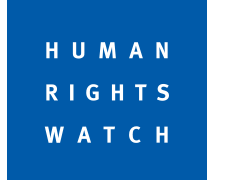Armed groups and some forces affiliated with two rival Libyan governments vying for legitimacy are committing rampant abuses against Libyans and foreigners with impunity, Human Rights Watch said in its World Report 2018.
Since the eruption of pitched conflict in May 2014, armed groups unlawfully killed, disappeared, tortured, forcibly displaced, and arbitrarily detained and kidnapped people, for political, economic, or criminal motives. Hundreds of thousands of Libyans remained internally displaced, while armed groups and criminals exploited and subjected to violence thousands of migrants, mostly from sub-Saharan Africa.
“The migration crisis in the central Mediterranean shows the rest of the world that it is ignoring Libya’s human rights disaster at its own peril,” said Eric Goldstein, deputy Middle East director at Human Rights Watch. “Stabilizing the situation in Libya requires establishing some measure of accountability for the rampant abuse being committed by various actors.”
In the 643-page World Report, its 28th edition, Human Rights Watch reviews human rights practices in more than 90 countries. In his introductory essay, Executive Director Kenneth Roth writes that political leaders willing to stand up for human rights principles showed that it is possible to limit authoritarian populist agendas. When combined with mobilized publics and effective multilateral actors, these leaders demonstrated that the rise of anti-rights governments is not inevitable.
Armed conflicts since 2014 resulted in the collapse of central authority. Key institutions, most notably law enforcement and the judiciary, are dysfunctional in most parts of the country, virtually guaranteeing domestic impunity.





